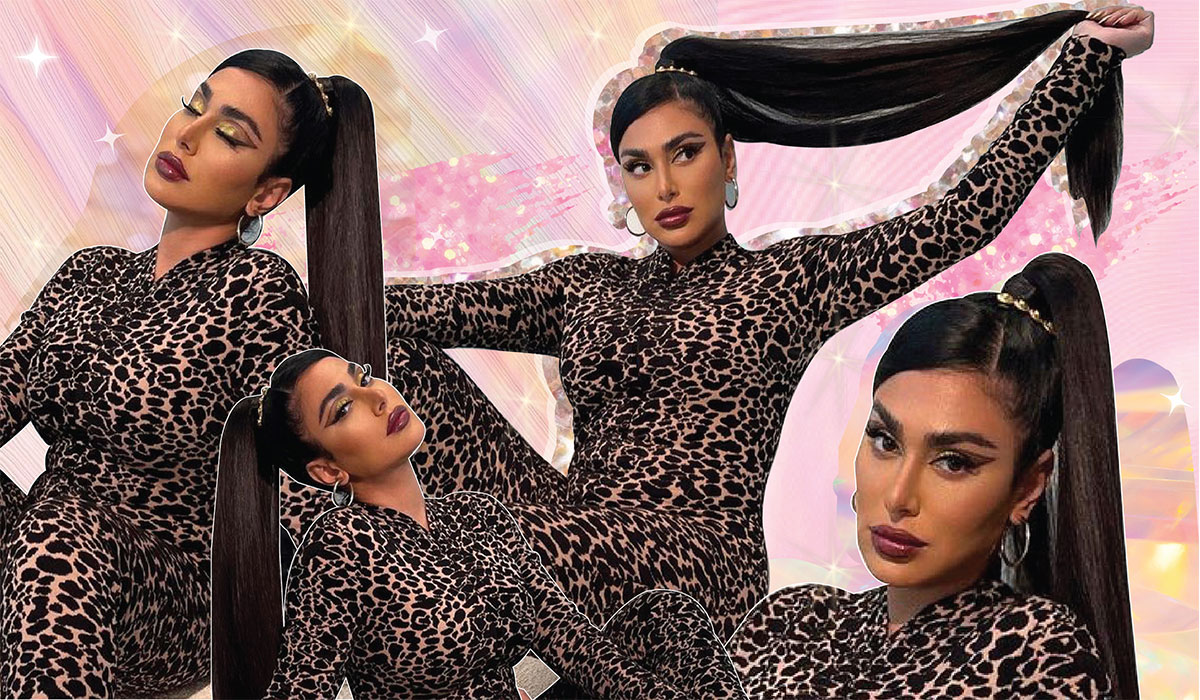Experts Say Intuitive Eating Is The Opposite Of Restrictive Diets...
 via Giphy
via Giphy
Intuitive eating might sound like a mystical spin on diets, but it’s way more straightforward than that. Think of it as the opposite of restrictive diets or fasting. The goal is to focus on what you’re putting into your body and when versus completely eliminating food groups or disallowing yourself from eating at certain times of the day. To catch up to speed on this trendy topic, we enlisted help from a couple of dieticians and a mental health expert. Let’s dive in.
What is Intuitive Eating?
“Intuitive eating is all about listening to your body and trusting your mind to understand what it needs,” explains Monica Milonovich, a registered dietician nutritionist and advisor for Alpha. “In the simplest terms, intuitive eating is eating when you are hungry and stopping when you are full.”
There are ten main principles of intuitive eating, which are outlined in-depth here. To sum it up, though, those principles include the following:
- Rejecting diet mentality
- Eating when you’re hungry
- Making peace with food
- Challenging the “food police”
- Discovering satisfaction
- Feeling your fullness
- Coping with your emotions
- Respecting your body
- Feeling the movement of your body (versus focusing on calorie burning)
- Honoring your health
Intuitive eating is completely different from restrictive diets or fasting, and many experts argue it’s actually a healthier approach. Instead of putting you into a tailspin or a yo-yo cycle, it sets you up for ongoing, lifelong change.
 via Giphy
via Giphy
Do You Lose Weight With Intuitive Eating?
Though it’s entirely possible to lose weight via intuitive eating, that’s not the ultimate goal. “The intention is to deepen the connection to your body’s desires and learn to allow yourself to enjoy food and be accountable to your goals,” notes Alana Kessler, a registered dietician.
She adds, “If your goal is weight loss, then it can be a strategy, but you will need to understand the building blocks of nutrition and have support and strategies in place for times when emotions arise around foods and circumstances that can trigger overeating.”
Posts You'll Love:
How Do You Tap into Your Intuition?
 via Giphy
via Giphy
All the above sounds great, right? But how are you supposed to tap into that nebulous thing called “intuition?”
Kessler says, “It takes practice and the willingness to attend and befriend uncomfortable feelings, and to apply pause and inquiry towards it. Intuition is a feedback loop and requires a courageous heart.”
Milonovich agrees, adding that there are many ways you can tap into your intuition and master the art of intuitive eating. She recommends reading the book Intuitive Eating, and/or working with a registered dietician who specializes in this methodology. In addition, focus on these three tips:
- Cultivate a healthy relationship with food
- Avoid distractions when first getting started
- Stop eating before you are full
In addition to physically feeling better and in more control of your relationship with food, intuitive eating also has mental health benefits. “Because it fosters trust with your body – for example, your hunger cues and your [fullness] cues – it also supports a healthy connection between mind and body,” explains Dr. Naomi Torres-Mackie, a clinical psychologist, professor at Columbia University, and head of research at the Mental Health Coalition. “Becoming disconnected in this way is related to mental stress, so engaging in a practice that encourages you to be more attuned to your body should also be good for your mind and mental wellness.”
 via Giphy
via Giphy
She says that studies on intuitive eating show us that this approach to food can help foster higher self-esteem and improve our body image. It can also decrease the potential for disordered eating – whereas restrictive diets and fasting can trigger disordered eating.
“This 2013 study on intuitive eating is one of the largest studies on intuitive eating and mental wellness,” notes Dr. Torres-Mackie. “It [found] that intuitive eating is related to life satisfaction, self-esteem, and body appreciation. It was also connected to less eating disorder symptoms, less body surveillance, less body shame, and less internalization of media appearance ideas.”
Potential Drawbacks of Intuitive Eating
 via Giphy
via Giphy
As with most things, there are a few considerations to keep in mind when considering the intuitive eating approach. For starters, it takes some serious practice to get the hang of.
“Intuitive eating is a learned skill, and therefore it may be hard for some people to master it right away,” notes Milonovich. “Additionally, intuitive eating doesn’t provide structure or a road map to success and is different for everyone. Some people may struggle with this format. With this little structure, it is easy to overeat and indulge instead of listening to your body.”
In that sense, there’s a real learning curve here that can lead to some frustration or confusion until you figure it out. It’s the same concept with any new-to-you endeavor, though, whether that’s learning how to ride a bike or starting a new job. Eventually, we get the hang of whatever we’re trying to master, so there’s always that aspect to look forward to.
Most importantly, remember that we are all different; our natural tendencies, as well as our lifestyles and personalities, mean that different things work for different people. You may read this and immediately know that it’s not for you, but maybe this sounds like something you think you could get on board with!
Have you ever thought about trying intuitive eating? Or have you already begun this practice? We want to hear all your thoughts, questions, and comments!






















Leave a comment